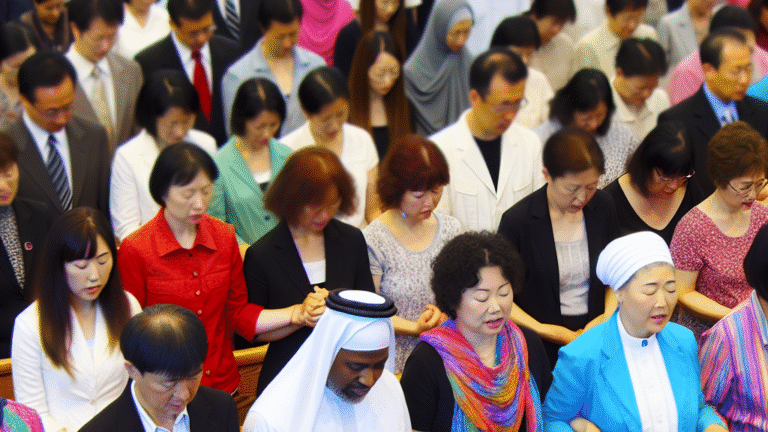This article delves into the dynamic role of cross-cultural ministries within Korean Christian churches and international fellowships. It uncovers how these faith-based communities foster church unity, a Christ-centered life, and spiritual harmony through discipleship and mission.
The Essence of Korean Christian Church Life
The Korean Christian church has emerged as a vital institution promoting a Christ-centered life, deeply rooted in its rich history and cultural integration. This church reflects a unique blend of Korean traditions and Christian teachings, fostering community through shared worship and fellowship. The emphasis on discipleship and mission within its structure encourages a profound sense of spiritual harmony. Through various ministries, the church cultivates love across cultures, enabling believers to pursue faith in community. This commitment strengthens church unity, empowering individuals to bring hope through Christ to their neighborhoods and the world at large, thereby transforming lives through its message.
International Fellowship and Its Impact
International fellowship plays a pivotal role in uniting believers across the globe, particularly within the context of the Korean Christian church. Through shared worship and fellowship, individuals from diverse backgrounds come together to express their faith in community. This collective experience fosters spiritual harmony, demonstrating that love transcends cultural boundaries.
Historically, collaborative efforts like the Korean American churches in the U.S. have exemplified the impact of international fellowship, providing platforms for discipleship and mission that encourage mutual support and understanding. Contemporary examples, such as global prayer initiatives, further illustrate how such connections cultivate hope through Christ, transforming lives and communities alike.
Cross-Cultural Ministry: Building Bridges
Cross-cultural ministries serve as vital bridges between diverse communities, fostering an environment where understanding and love can flourish. By drawing upon the rich cultural heritage of the Korean Christian church, these ministries promote a Christ-centered life, emphasizing spiritual harmony that transcends cultural divides. Through shared worship, communal activities, and outreach, they cultivate faith in community, enabling believers to share their unique perspectives while learning from one another. Organizations like the International Fellowship of Christians and Jews exemplify this ethos, proving that love across cultures is not only possible but essential. Such initiatives inspire hope through Christ and empower individuals to participate actively in the greater mission of unity and discipleship.
Faith in Community: Embracing Discipleship and Mission
Discipleship and mission are vital in cultivating faith within a community, especially in the context of Korean Christian churches embracing cross-cultural dynamics. By fostering a Christ-centered life, believers engage in spiritual growth through structured discipleship programs that emphasize relational dynamics and accountability. These programs may include small group gatherings, mentorship initiatives, and community service activities.
Additionally, international fellowships provide platforms for diverse congregational interactions, allowing members to share cultures and testimonies. Such engagement nurtures love across cultures, reinforcing the church’s mission to shine hope through Christ. As members commit to collective worship and outreach, they strengthen their spiritual harmony and contribute to genuine church unity.
Achieving Church Unity through Spiritual Harmony
A commitment to spiritual harmony is foundational for church unity, particularly within the context of a Korean Christian church engaged in international fellowship. By cultivating a Christ-centered life that transcends cultural boundaries, faith communities can actively foster love across cultures. Practical steps include hosting joint worship services where diverse languages enhance the richness of the celebration, encouraging fellowship groups that mix different cultural backgrounds, and creating discipleship programs focused on shared values and mutual growth in faith. Such initiatives not only build trust but also create a vibrant community that embodies hope through Christ, developing a deeper understanding of collective mission.
Parting Words
In today’s globalized world, fostering church unity requires a genuine commitment to understanding, love, and cooperation across cultures. By engaging in cross-cultural ministry and nurturing a Christ-centered life, churches can achieve profound spiritual harmony.
